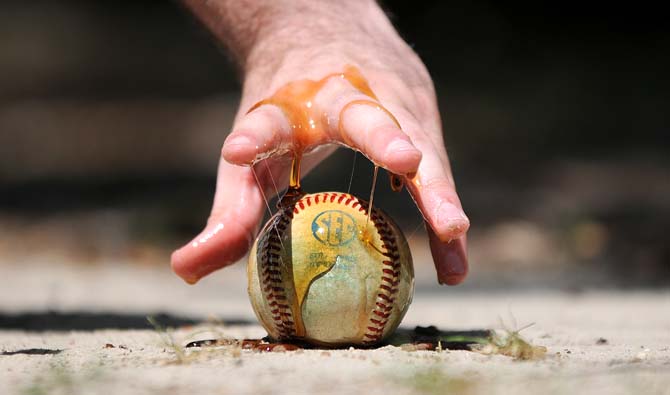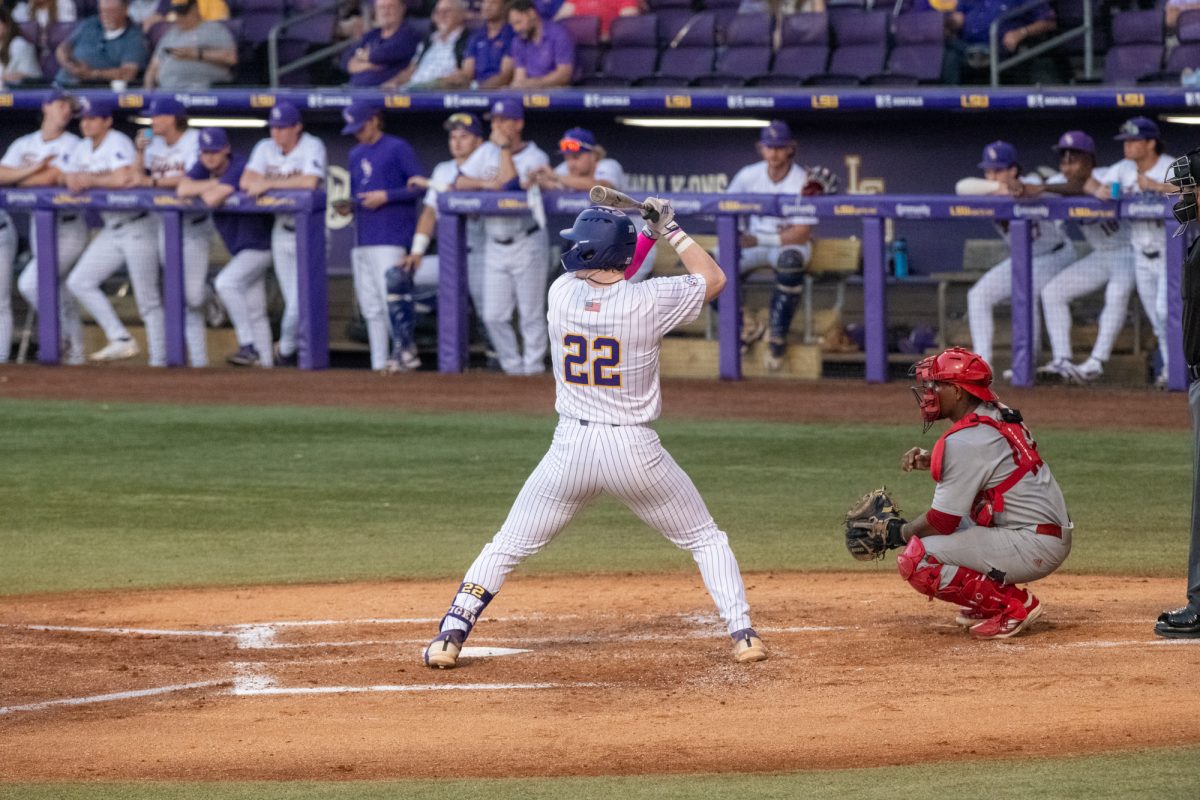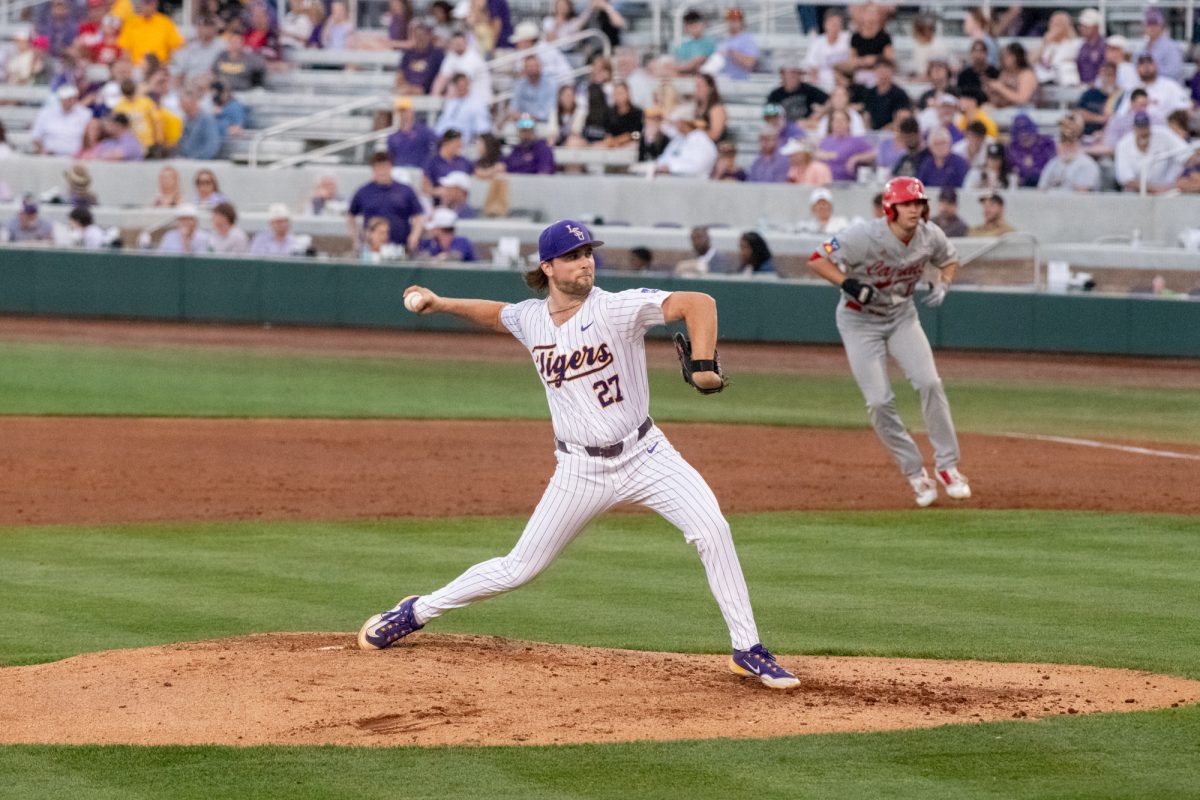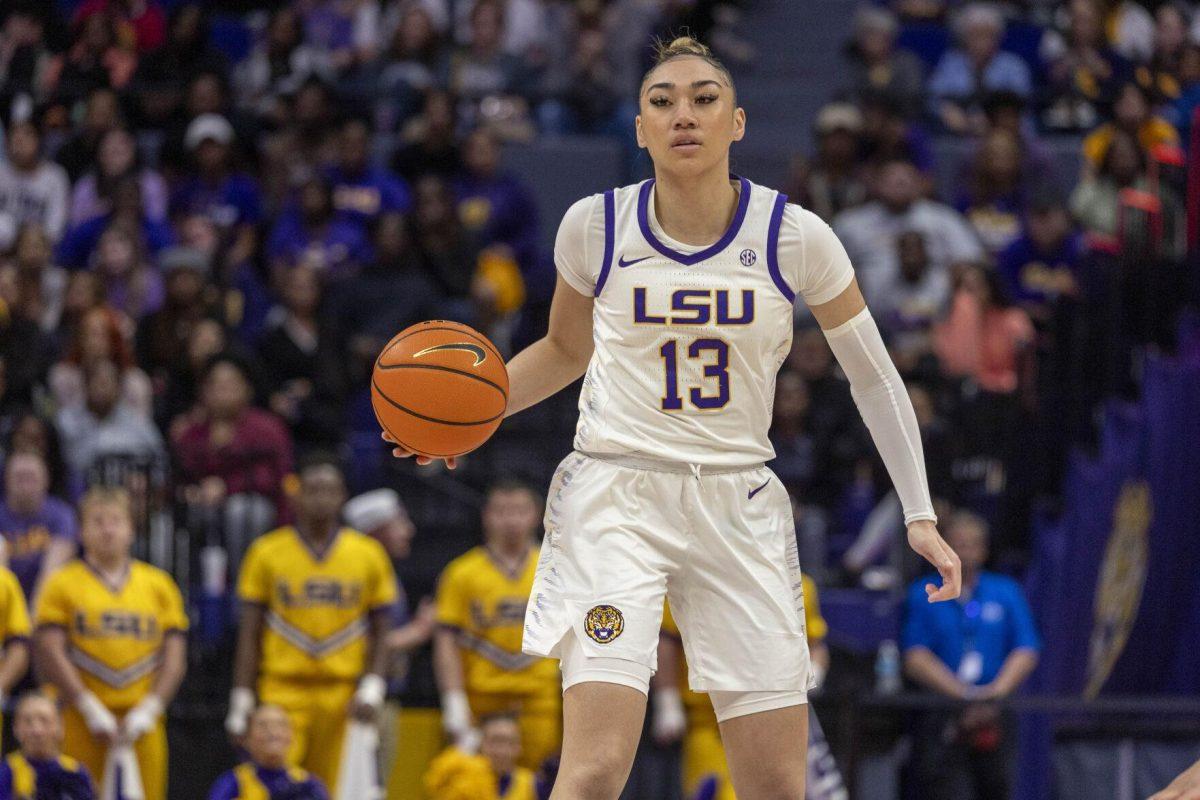From a rudimentary viewpoint, it’s difficult to spot many differences between college baseball and the major league.
Sure, collegians use aluminum bats as opposed to the wooden ones swung by professionals, but pitchers in both leagues stand 60 feet and 6 inches away from the hitter.
First base is still 90 feet away in both leagues. Park dimensions vary, as they do in the major leagues. And pitchers pay for mistakes in those parks where the fences are closer than normal.
In the major leagues, avoiding those mistakes takes skill — and sometimes a shortcut.
Yankees right-hander Michael Pineda exposed one such shortcut last Wednesday when he emerged from the Fenway Park dugout with an obvious spot of pine tar on his neck. Pitchers use the sticky tar to get a better grip on the ball or to better control it when they’re having an off night.
The Pineda incident — for which he was ejected from the game against the Red Sox and suspended for 10 more — put a bigger emphasis on Major League Baseball rule 8.02.
“The pitcher shall not apply a foreign substance of any kind to the ball,” the rule states.
Although countless managers and pitchers confess that in some form or fashion all pitchers doctor the ball — being as obvious as Pineda’s tar on his neck was too much to let slide.
While continuously used in the major leagues, it was unanimous among LSU pitchers that foreign substances aren’t used on the Tiger staff or anywhere else in college baseball.
“I’ve never seen it in college baseball,” said LSU senior Joe Broussard. “I just try to use whatever I have to make my pitches work. I’ve never put [pine tar] on my hand. I’m kind of glad I didn’t so I don’t know what it does.”
LSU coach Paul Mainieri, a college coach for 32 seasons, said he’s unaware of any instance when a foreign substance was used.
“I’ve never seen anyone do it,” Mainieri said. “These kids probably wouldn’t know what to do with it anyway.”
The same can be said for junior colleges, according to a few of LSU’s transfers.
Junior left-hander Henri Faucheux, a transfer from Tuscaloosa, Ala.-based Shelton State Community College, said foreign substances weren’t among the myriad of things he saw while biding his time at Shelton State.
“Junior college, shoot, everything flies, but I didn’t see it,” Faucheux said. “I don’t think it happens in college. Something sticky on my fingers would be weird. I think that would be awkward trying to pitch.”
Classmate and LSU-Eunice transfer Zac Person concurred, claiming he didn’t notice anything out of the ordinary while in junior college, but did say some pitchers lathered up with sunscreen before games out of necessity to avoid burning.
“That’s not really cheating though,” Person said. “That’s part of it. I usually just lick my fingers a lot.”
All LSU pitchers interviewed were synonymous that there aren’t any foreign substances used in the Tiger dugout.
But, if there were, Faucheux has a better plan than Pineda.
“Nobody would put it on their neck or their hand,” Faucheux joked. “Maybe some people may put it on their shoe.”
Pine tar not prevalent in college baseball, LSU players say
April 27, 2014
More to Discover










